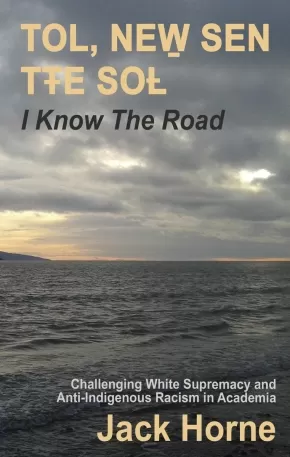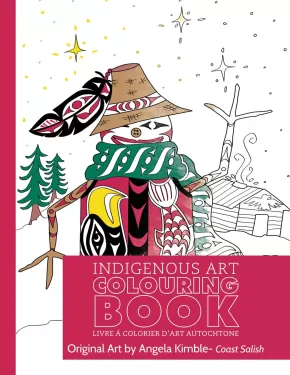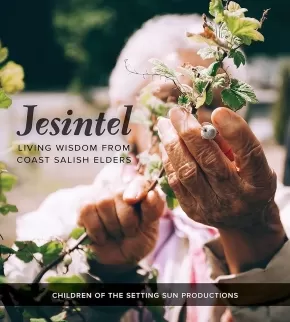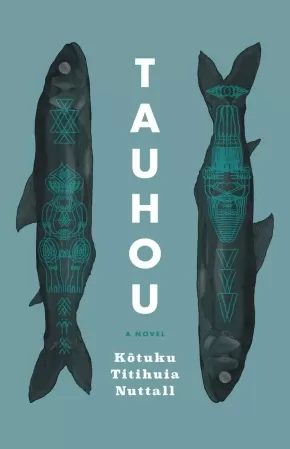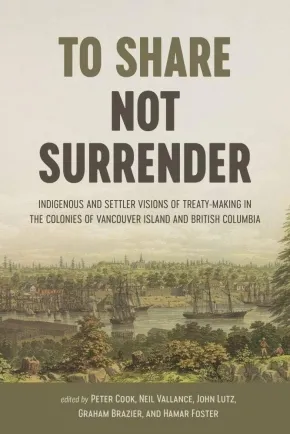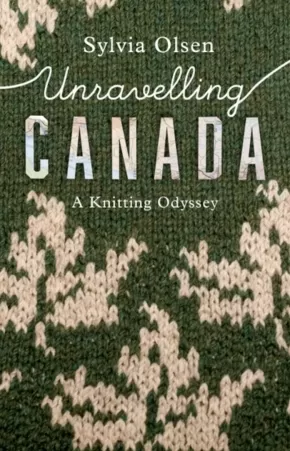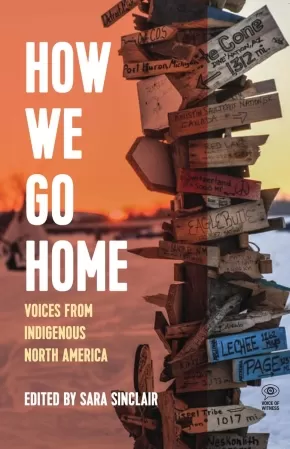
Saanich (WSANEC)
1
-
9
of
9 Results;
Sort By
TOL, NEW̱ SEN TŦE SOȽ: I Know the Road
$28.00
Format:
Paperback
Text Content Territories:
Indigenous Canadian; First Nations; Salish; Coast Salish; Saanich (WSANEC);
Reading Level: N/A
ISBN / Barcode: 9781927886847
Synopsis:
Synopsis:
Academia remains an unwelcoming space for Indigenous scholars. What space it does cede to Indigenous knowledge is dictated and narrowly defined. W̱SÁNEĆ scholar Jack Horne, author of TOL, NEW̱ SEN TŦE SOȽ: I Know the Road articulates his own negotiation with academia:
“In response to the question of how I, a W̱SÁNEĆ artist and scholar, use embodied W̱SÁNEĆ knowledge in my artistic and academic work, this book advocates for a move away from standard social sciences theories, methodologies and paradigms while forcefully insisting on a W̱SÁNEĆ paradigm.”
To accomplish this constructive goal, Horne argues, “requires a negotiation of embodied W̱SÁNEĆ knowledge, performance studies theory, and western eurocentric social sciences paradigms.”
Written through beautiful storytelling practices with this goal in mind, TOL, NEW̱ SEN TŦE SOȽ: I Know the Road is thus part personal and cultural history, and part contemporary critique. Horne uses a variety of research, letters, and even fragments from his plays, to create a compelling challenge to outmoded academic structures, proposing an alternative that embraces and tools historically suppressed W̱SÁNEĆ ways of knowing. Not only does Horne’s writing confront white supremacy and anti-Indigenous racism in academia, it offers material alternatives to status quo, white-centric pedagogy. With its focus on W̱SÁNEĆ history and knowledge practices, this book offers a praxis of Indigenous knowledge and performance study theory that delivers a unique and deeply valuable pedagogic project.
Additional Information
216 pages | 5.50" x 8.50"| Paperback
Indigenous Art Colouring Book: Holidays
$10.00
Artists:
Format:
Paperback
Text Content Territories:
Indigenous Canadian; First Nations; Salish; Coast Salish;
ISBN / Barcode: COLOURING029
Synopsis:
Synopsis:
This Indigenous Art Colouring Book features Holiday designs to colour from Coast Salish artist Angela Kimble.
Included are 28 colouring pages based on original pieces of artwork created by the artist, as well as information on the artist's cultural background and the artist's biography. The artist is paid royalties for the sale of this product.
Additional Information
8.5" x 11" | 28 Colouring Pages | Made in Canada
Jesintel: Living Wisdom from Coast Salish Elders
$48.00
Artists:
Format:
Paperback
Text Content Territories:
Indigenous Canadian; First Nations; Salish; Coast Salish; Sto:lo; Saanich (WSANEC); Tsartlip; Musqueam; Malahat; Cowichan; Tsleil-Waututh; Indigenous American; Native American; Salish; Coast Salish; Tulalip; Swinomish; Snoqualmie; Nisqually; Muckleshoot; Lhaq'temish (Lummi Nation); Klallam (Clallam); Jamestown S'Klallam;
Grade Levels: 12; University/College;
ISBN / Barcode: 9780295748641
Synopsis:
Synopsis:
“We need to learn and grow together, and if we are able to do this, we will create harmony,” counsels Tom Sampson, an elder of Tsartlip First Nation in British Columbia.
Dynamic and diverse, Coast Salish culture is bound together by shared values and relations that generate a resilient worldview. Jesintel—"to learn and grow together"—characterizes the spirit of this book, which brings the cultural teachings of nineteen elders to new generations.
Featuring interviews that share powerful experiences and stories, Jesintel illuminates the importance of ethical reciprocal relationships and the interconnectedness of places, land, water, and the spirit within all things. Elders offer their perspectives on language revitalization, Coast Salish family values and naming practices, salmon, sovereignty, canoe racing, and storytelling. They also share traumatic memories, including of their boarding school experiences and the epidemics that ravished their communities. Jesintel highlights the importance of maintaining relations and traditions in the face of ongoing struggles. Collaboration is at the heart of this work and informs how the editors and community came together to honor the boundless relations of Coast Salish people and their territories.
Elders Interviewed:
Tom Sampson (Tsartlip First Nation)
Virginia Cross (Muckleshoot Tribe)
Ernestine Gensaw (Lummi Nation)
Steve and Gwen Point (Stó:lō Nation)
Gene and Wendy Harry (Malahat Nation)
Claude Wilbur (Swinomish Tribe)
Richard Solomon (Lummi Nation)
Elaine Grinell (Jamestown S’Klallam Tribe)
Arvid Charlie (Cowichan Nation)
Amy George (Tsleil-Waututh Nation)
Nancy Shippentower (Nisqually Tribe)
Nolan Charles (Musqueam Indian Band)
Andy de los Angeles (Snoqualmie Tribe)
Jewell James (Lummi Nation)
Kenny Moses Sr. Family (Tulalip Tribal Nation)
Ramona Morris (Lummi Nation)
Reviews
"A beautiful sharing of thriving Coast Salish communities. Indigenous elders, cultures, and languages have so much precious wisdom to share, and Jesintel celebrates these through storytelling and photos. It is a generous gift to anyone who wants to better understand the resilience of Indigenous communities."- Michelle M. Jacob (Yakama), author of The Auntie Way: Stories Celebrating Kindness, Fierceness, and Creativity
Educator Information
Nineteen elders from Coast Salish communities in the Pacific Northwest and British Columbia offer a portrait of their perspectives on language, revitalization, and Coast Salish family values. Topics include naming practices, salmon, canoe journeys and storytelling.
Additional Information
224 pages | 9.00" x 10.00" | 144 colour illustrations | 1 map | Paperback
Tauhou: A Novel
$24.99
Text Content Territories:
Indigenous Canadian; First Nations; Salish; Coast Salish; Saanich (WSANEC); Indigenous New Zealander; Maori; Ngati Tuwharetoa; Te Ati Awa;
Reading Level: N/A
ISBN / Barcode: 9781487011697
Synopsis:
Synopsis:
Dear grandmother, I am writing this song, over and over again, for you. I am a stranger in this place, he tauhou ahau, reintroducing myself to your land.
Tauhou is an inventive exploration of Indigenous families, womanhood, and alternate post-colonial realities by Kotuku Titihuia Nuttall, a writer of Maori and Coast Salish descent. This innovative hybrid novel envisions a shared past between two Indigenous cultures, set on reimagined versions of Vancouver Island and Aotearoa New Zealand that sit side by side in the ocean.
Each chapter is a fable, an autobiographical memory, a poem. A monster guards cultural objects in a museum, a woman uncovers her own grave, another woman remembers her estranged father. On rainforest beaches and grassy dunes, sisters and cousins contend with the ghosts of the past - all the way back to when the first foreign ships arrived on their shores.
In a testament to the resilience of Indigenous women, the two sides of this family, Coast Salish and Maori, must work together in understanding and forgiveness to heal that which has been forced upon them by colonialism. Tauhou is an ardent search for answers, for ways to live with truth. It is a longing for home, to return to the land and sea.
Reviews
"Tauhou is a search for answers, of finding ways to live with the truth. Some of the stories are like fables, others like poetry, and all are a sheer joy to read. A longing for home resonates, a gift for those of us searching for our island also."— Kete Books
"This one's for the lovers of language, lean prose-poetry you can dip in and out of and think about for hours. Best read beside a large body of water."— Woman Magazine
"Brilliantly written in the best of Maori and Coast Salish practices of story, Tauhou is teeming with possibility, love, and dreaming otherwise." — Leanne Betasamosake Simpson, author of Noopiming: The Cure for White Ladies
"Kotuku Titihuia Nuttall takes threads made from all the colours of the Indigenous experience and crosses them over oceans, cultures, and time." — Tayi Tibble, author of Poukahangatus and Rangikura
"Kotuku Titihuia Nuttall's Tauhou is a brilliant example of what language can do when forged with intentional hands and a fantastic mind. Nuttall's work binds words in a way that doesn't hold too tightly but steadfastly contains the many Ancestors present in Nuttall's life and work, weaving together a tapestry of nuance and witnessing. Masterful dialogue and rich scenes move emotions like the currents around Aotearoa and the Salish Seas, a beautiful display of lyricism that loudly proclaims that Kotuku Titihuia Nuttall belongs in the crescendo of rising voices in CanLit. Tauhou is not a collection to miss!" — jaye simpson, author of it was never going to be okay
"The stories in this collection move like the waves of the ocean that divide Vancouver Island and Aotearoa. Once you emerge from Tauhou's narrative depths, you'll miss its imagination, its rhythms, its heart." — Alicia Elliott, author of A Mind Spread Out on the Ground
Educator Information
Includes a SENĆOŦEN glossary, a Te Reo Māori glossary, an Author's Notes and Acknowledgements.
Curriculum Connections: Indigenous Studies
Additional Information
224 pages | 5.00" x 7.75" | Hardcover
Amplifying Indigenous Voices in Business: Indigenization, Reconciliation, and Entrepreneurship
$26.95
Format:
Paperback
Text Content Territories:
Indigenous Canadian;
Reading Level: N/A
ISBN / Barcode: 9781770403406
Synopsis:
Synopsis:
Indigenization is more than reconciliation: It is a better business practice!
Some of the common questions businesses, educational institutions, and communities ask are: “Do we need an Indigenization strategy? If so, why; what is it really?; and, how do we do it?”
Amplifying Indigenous Voices in Business is for organizations and allies who would like to make a positive difference by learning how to amplify Indigenous voices, Indigenize businesses, and support Indigenous entrepreneurship, all in the bigger spirit of reconciliation.
Author Priscilla Omulo addresses Canada’s complicated history with Indigenous peoples and how that contributes to today’s challenges in the business realm. While the challenge is real, so is the opportunity, and Omulo’s step-by-step guide explains how any organization can make immediate plans to improve the way they do business by doing the research, consulting the right people, and formulating a strategy to move forward. Omulo shows readers how a commitment to doing the right thing will lead to a more sustainable and inclusive place for all, and a stronger foundation for businesses and other organizations.
Additional Information
152 pages | 6.00" x 9.00" | Paperback
To Share, Not Surrender: Indigenous and Settler Visions of Treaty Making in the Colonies of Vancouver Island and British Columbia
$37.95
Editors:
Format:
Paperback
Text Content Territories:
Indigenous Canadian; First Nations; Salish; Coast Salish; Songhees (Lekwungen); Saanich (WSANEC); Nuu-chah-nulth (Nootka); Huu-ay-aht;
ISBN / Barcode: 9780774863834
Synopsis:
Synopsis:
Too often, history and knowledge of Indigenous-settler conflict over land take the form of confidential reports prepared for court challenges. To Share, Not Surrender offers an entirely new approach, opening scholarship to the public and augmenting it with First Nations community expertise.
The collection appraises the historical and present-day relevance of treaty-making in the colonies of Vancouver Island and British Columbia. The authors take us back to when James Douglas and his family relocated to Fort Victoria on Vancouver Island in 1849, critically tracing the transition from treaty-making in the colony of Vancouver Island to reserve formation in the colony of British Columbia. Informed by cel’aṉ’en – “our culture, the way of our people” – this multivocal work explicitly addresses the tensions between academic research, Indigenous knowledge, and local experience. The collection includes essays, translations/interpretations of the treaties into the SENĆOŦEN and Lekwungen languages, and contributions by participants of the Songhees, Huu-ay-aht, and WSANEC peoples.
The chapters demonstrate that the continuing inability to arrive at equitable land-sharing arrangements stem from a fundamental absence of will with respect to accommodating First Nations world views. To Share, Not Surrender is an attempt to understand why, and thus to advance the urgent task of reconciliation in Canada.
The multiple perspectives presented in this important work will find equally diverse audiences: Canadian historians, scholars and students of Indigenous studies, ethno-historians, legal historians, lawyers practising in the areas of Aboriginal law, and researchers preparing historical reports on First Nation land claims.
Reviews
"The past is with us and history matters. Read To Share Not Surrender as a great example of how there can be different interpretations of the past." — Robin Fisher, The British Columbia Review
"After James Douglas negotiated treaties on Vancouver Island, he never made another in BC. Why not? Some of the foremost experts in the field work here to answer this question, analyzing Douglas’s policies and their lasting impact on BC First Nations’ continuing battle with rights and title." — Daniel Boxberger, professor emeritus, anthropology, Western Washington University
"The connection that To Share, Not Surrender makes between the events of the 1850s and 1860s and the modern-day treaty process in British Columbia is extremely valuable. It helps the reader develop a better understanding, not only of colonial history, but also of the relevance of Indigenous law to territorial claims today." — Kent McNeil, author of Flawed Precedent: The St. Catherine’s Case and Aboriginal Title
Educator Information
Contributors: Keith Thor Carlson, Robert Clifford, Emchayiik Robert Dennis Sr., STOLCEL John Elliott Sr., Elmer George, Stephen Hume, Maxine Hayman Matilpi, Kevin Neary, Adele Perry, Sarah Pike, Chief Ron Sam, and Laura Spitz
Additional Information
330 pages | 6.00" x 9.00" | Paperback
Unravelling Canada: A Knitting Odyssey
$26.95
Format:
Paperback
Text Content Territories:
Indigenous Canadian; First Nations; Salish; Coast Salish; Cowichan; Saanich (WSANEC); Tsartlip;
ISBN / Barcode: 9781771622868
Synopsis:
Synopsis:
Author and knitter Sylvia Olsen explores Canada's history, landscape, economy and social issues on a cross-country knitting-themed road trip.
Toques, mittens and scarves are all associated with northern climates, but the quintessential garment of Canadian knitting is surely the bulky and distinctly patterned West Coast cardigan. In the early twentieth century, Indigenous woolworkers on southern Vancouver Island began knitting what are now called Cowichan sweaters, named for the largest of the Coast Salish tribes in the region. Drawing on their talents as blanket weavers and basket makers, and adapting techniques from European settlers, Coast Salish women created sweaters that fuelled a bustling local economy. Knitters across the country copied the popular sweaters to create their own versions of the garment. The Cowichan sweater embodies industry and economy, politics and race relations, and is a testament to the innovation and resilience of Coast Salish families.
Sylvia Olsen married into the Tsartlip First Nation near Victoria, BC, and developed relationships with Coast Salish knitters through her family’s sweater shop. Olsen was inspired to explore the juncture of her English/Scottish/European heritage and Coast Salish life experiences, bringing to light deeply personal questions about Canadian knitting traditions. In 2015, she and her partner Tex embarked on a cross-Canada journey from the Salish Sea to the Atlantic Ocean with stops in more than forty destinations to promote her books, conduct workshops, exchange experiences with other knitters and, Olsen hoped, discover a fresh appreciation for Canada.
Along the way, with stops in urban centres as well as smaller communities like Sioux Lookout, ON, and Shelburne, NS, Olsen observed that the knitters of Canada are as diverse as their country’s geography. But their textured and colourful stories about knitting create a common narrative. With themes ranging from personal identity, cultural appropriation, provincial stereotypes and national icons, to “boyfriend sweaters” and love stories, Unravelling Canada is both a celebration and a discovery of an ever-changing national landscape. Insightful, optimistic, and beautifully written, it is a book that will speak to knitters and would-be knitters alike.
Reviews
"I love this book, for what it says about the artisans of the past and the present, for what it says about what gets passed on from family to family and between different cultures, for what it says about our country and the people who inhabit it. This book knits us together, not only with strands of wool but with compassion, intelligence, caring and storytelling of the most appealing kind." — Lorna Crozier, author of Through the Garden, March 2021
Additional Information
224 pages | 5.50" x 8.50"
How We Go Home: Voices from Indigenous North America
$26.00
Editors:
Format:
Paperback
Text Content Territories:
Indigenous Canadian; First Nations; Salish; Coast Salish; Snuneymuxw ; Saanich (WSANEC); Tsartlip; Haudenosaunee (Iroquois); Tuscarora; Kanyen'keha:ka (Mohawk); Gitxsan (Gitksan); Anishinaabeg; Ojibway; Saulteaux; Oji-Cree; Métis; Indigenous American; Native American; Sioux; Lakota; Sicangu Oyate (Rosebud Sioux Tribe); Santa Clara Pueblo; Mojave; Apache; Lipan Apache Tribe of Texas;
Reading Level: N/A
ISBN / Barcode: 9781773633381
Synopsis:
Synopsis:
In myriad ways, each narrator's life has been shaped by loss, injustice, and resilience--and by the struggle of how to share space with settler nations whose essential aim is to take all that is Indigenous.
Hear from Jasilyn Charger, one of the first five people to set up camp at Standing Rock, which kickstarted a movement of Water Protectors that roused the world; Gladys Radek, a survivor of sexual violence whose niece disappeared along Canada's Highway of Tears, who became a family advocate for the National Inquiry into Missing and Murdered Indigenous Women and Girls; and Marian Naranjo, herself the subject of a secret radiation test while in high school, who went on to drive Santa Clara Pueblo toward compiling an environmental impact statement on the consequences of living next to Los Alamos National Laboratory. Theirs are stories among many of the ongoing contemporary struggles to preserve Indigenous lands and lives--and of how we go home.
Reviews
“How We Go Home is a testament to modern-day Indigenous revitalization, often in the face of the direst of circumstances. Told as firsthand accounts on the frontlines of resistance and resurgence, these life stories inspire and remind that Indigenous life is all about building a community through the gifts we offer and the stories we tell.”— Niigaan Sinclair, associate professor, Department of Native Studies at the University of Manitoba and columnist, Winnipeg Free Press
“The voices of How We Go Home are singing a chorus of love and belonging alongside the heat of resistance, and the sound of Indigenous life joyfully dances off these pages.”—Leanne Betasamosake Simpson, author of As We Have Always Done
“How We Go Home confirms that we all have stories. These stories teach us history, morality, identity, connection, empathy, understanding, and self-awareness. We hear the stories of our ancestors and they tell us who we are. We hear the stories of our heroes and they tell us what we can be." —Honourable Senator Murray Sinclair
Educator Information
Table of Contents
Editor’s Notes
Introduction (Sara Sinclair)
Executive Director’s Note (Mimi Lok)
Map
Gladys Radek, Terrace, Gitxsan / Wet’suwet’en First Nations—“When Tamara went missing, it took the breath out of me.”
Jasilyn Charger, Cheyenne River Sioux—“My son’s buried by the river. . . . I vowed to him that he’s gonna be safe, that no oil was gonna touch him.”
Wizipan Little Elk, Rosebud Lakota Tribe—“On the reservation, you have the beauty of the culture and our traditional knowledge contrasted with the reality of poverty.”
Geraldine Manson, Snuneymuxw First Nation—The nurse was trying to get me to sign a paper to put our baby, Derrick, up for adoption.”
Robert Ornelas, New York City, Lipan Apache / Ysleta del Sur Pueblo—“A part of the soul sickness for me was being ashamed . . . what we were being taught about Indians was so minimal and so negative.”
Ashley Hemmers, Fort Mojave Indian Tribe—“I didn’t work my ass off to get to Yale to be called a squaw.”
Ervin Chartrand, Selkirk, Métís/Salteaux—“They said I fit the description because I looked like six other kids with leather vests and long hair who looked Indian.”
James Favel, Winnipeg, Peguis First Nation “You’re a stakeholder because you’ve got to walk these streets every day.”
Marian Naranjo, Santa Clara Pueblo—“Indigenous peoples’ reason for being is to be the caretakers of Creator’s gifts—of the air, the water, the land.”
Blaine Wilson, Tsartlip First Nation “When I was twenty-five, thirty, there was more salmon and I was fishing every other day. Now I’m lucky to go once a week.”
Althea Guiboche, Winnipeg, Métis/Ojibwe/Salteaux “I had three babies under three years old and I was homeless.”
Vera Styres, Six Nations of the Grand River, Mohawk/Tuscarora“I was a ‘scabby, dirty little Indian.’”
Glossary
Historical Timeline of Indigenous North America
Essay: 1. The Trail of Broken Promises: US and Canadian Treaties with First Nations
Essay 2: “Indigenous Perspectives on Intergenerational Trauma”: An Interview with Johnna James
Essay 3: Indigenous Resurgence
Ten Things You Can Do
Further Reading
Acknowledgements
Additional Information
331 pages | 6.00" x 9.00" | Paperback
Saanich Ethnobotany
$29.95
Format:
Paperback
Text Content Territories:
Indigenous Canadian; First Nations; Salish; Coast Salish; Saanich (WSANEC);
ISBN / Barcode: 978-0772665775
Synopsis:
Synopsis:
Nancy Turner and Richard Hebda present the results of many years of working with botanical experts from the Saanich Nation on southern Vancouver Island. Elders Violet Williams, Elsie Claxton, Christopher Paul and Dave Elliott pass on their knowledge of plants and their uses to future generations of Saanich and Coast Salish people, and to anyone interested in native plants. Saanich Ethnobotany includes detailed information about the plants that were traditionally harvested to use in all aspects of Saanich life, such as for food and medicines, and to make tools, buildings and weapons. Each plant is listed by its common (English), scientific and Saanich names. Each listing contains a brief botanical description with a colour photograph, where to find the plant and how it was used traditionally by the Saanich people. This important book celebrates the richness and tremendous value of locally based knowledge in a rapidly changing world.
Authenticity Note: This book has received the Authentic Text label because of its contributions from Elders Violet Williams, Elsie Claxton, Christopher Paul, and Dave Elliott.
Sort By

